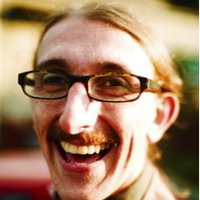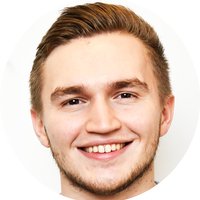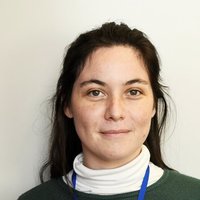Epigenetics
- Duration: 6 months
- Languages: English and french
What you will learn
At the end of this course, you will be able to:
- Comprehend the concept of epigenetics and give examples of epigenetic phenomena.
- Explain the main molecular mechanisms and molecules known to act in epigenetic processes.
- Discuss the implication of epigenetics in development and how environmental experiences can impact subsequent generations.
- Describe examples of diseases that are influenced by epigenetic mechanisms.
Description
Epigenetics is a new form of hereditary information that can be transmitted along with the DNA in every cell of our body and to future generations. This new type of information is central for explaining how multicellular organisms, which are composed of cells with identical DNA, generate and maintain many different cell types. Similarly, epigenetics may explain how our lifestyle and exposure to different environmental stresses can also influence the life of future generations. Thus, Epigenetics will contribute to expanding our notion of genetics, heritability, and diseases. This MOOC aims to provide a basic fundamental knowledge of what is considered to be epigenetic and explain in detail the molecules and mechanisms participating in epigenetic processes and their mechanism of action. Furthermore, we will discuss the implication of epigenetics in animal development and disease heritability.
Format
This MOOC is organised in 7 chapters: each chapter is composed of 2 to 5 sessions.
Each session is followed by two MCQs, allowing learners to test their understanding. At the end of each chapter, a set of MCQs is offered again. The videos are in English, with subtitles in English and French. The MCQs are in English and French.
Prerequisites
This MOOC is intended for biology students, from the undergraduate to the graduate level, doctors, teachers, researchers, and more generally for all those interested in epigenetics. A good scientific level is recommended to follow this MOOC (Bachelor of Science).
Assessment and certification
To follow this course, you can choose between two options:
- The Discovery Course gives access to videos, quizzes and discussions in the forum. No badge is issued for this course. Registration is free.
- The Qualifying Course leads to a certificate. In addition to the activities of the Discovery Course, you will have to take a one-hour supervised distance learning exam, consisting of 30 multiple-choice questions (MCQs) and obtaining 18 correct answers. The registration fee for the Qualifying Course is 150€.
Successful completion of the Qualifying Course gives you the opportunity to apply for the Institut Pasteur Online Diploma of Infectious Diseases (DNM2IP), which consists of 5 certificates to Institut Pasteur MOOCs on infectious diseases. To learn more, visit the Institut Pasteur's web page dedicated to this diploma.
Course plan
- 1-1: Why is epigenetics a new frontier in biology (Germano Cecere)?
1-2: From genetics to epigenetics: why do we need epigenetics to fully explain heritability (Jonathan Weitzman)?
1-3: What should we consider to be epigenetics (Pablo Navarro)?
- 2-1: Epigenetic chromatin modifications: how multiple varieties of chemical modifications decorate the epigenome and its activity (Nicola Iovino).
2-2: DNA methylation and its fundamental role in epigenetic gene silencing (Matthieu Boulard).
2-3: Regulation of epigenetic processes by non-coding RNAs (Germano Cecere).
2-4: Dynamic organization of the genome and its impact on gene regulation and epigenetic processes (Thomas Gregor).
- 3-1: X chromosome inactivation in Mammals (Claire Rougeulle).
3-2: Transgenerational epigenetic inheritance in animals (Giacomo Cavalli).
3-3: Epigenetic inheritance in plants (Vincent Colot).
3-4: Epigenetic processes in fungi (Eugene Gladyshev).
- 4-1: Inheritance of chromatin modifications at the beginning of life (Nicola Iovino).
4-2: Epigenetic reprogramming and genomic imprinting (Maxim Greenberg).
4-3: Role of epigenetic mechanisms during cell differentiation (Slimane Ait-Si-Ali).
4-4: Epigenetic variations in human populations (Lluis Quintana-Murci).
- 5-1: How nutrition drives heritable epigenetic changes (Germano Cecere)?
5-2: Epigenetic inheritance of environmental stresses (Ritwick Sawarkar).
5-3: Epigenetic control of selfish elements during environmental changes (Ritwick Sawarkar).
- 6-1: Epigenetic memory of bacterial infections (Mélanie Hamon).
6-2: Epigenetics and aging (Benoit Arcangioli).
6-3: Epigenetic mechanisms in metabolic diseases (Michelle Holland).
6-4: Role of DNA methylation and epigenetic histone modifications in cancer (Valentina Boeva).
6-5: Therapeutic epigenetic approaches to cancer (Paola Arimondo).
- 7-1: What will be the new frontiers of epigenetic research (Jonathan Weitzman, Ritwick Sawarkar, Germano Cecere)?
7-2: Implication of epigenetic discoveries for human society (Francesca Merlin).
Course team
Germano Cecere
Categories
Loan Bourdon
Categories
Arantxa ROJAS
Categories
Organizations
With the participation of
Slimane Ait-Si-Ali (Université Paris-Diderot), Benoit Arcangioli (Institut Pasteur), Paola Arimondo (Institut Pasteur), Valentina Boeva (Inserm, Paris), Matthieu Boulard (EMBL, Rome), Giacomo Cavalli (IGH, Montpellier), Vincent Colot (ENS Paris), Eugene Gladyshev (Institut Pasteur), Maxime Greenberg (Institut Curie), Thomas Gregor (Institut Pasteur), Mélanie Hamon (Institut Pasteur), Michelle Holland (King’s College, London), Nicola Iovino (Max Planck Institute, Freiburg), Francesca Merlin (Sorbonne University, Paris), Pablo Navarro-Gil (Institut Pasteur) Lluis Quintana-Murci (Institut Pasteur), Claire Rougeulle (Université Paris-Diderot), Ritwick Sawarkar (Max Planck Institute, Freiburg), Jonathan Weitzman (Université Paris-Diderot).
License
License for the course content

Attribution-NonCommercial-NoDerivatives
You are free to:
- Share — copy and redistribute the material in any medium or format
Under the following terms:
- Attribution — You must give appropriate credit, provide a link to the license, and indicate if changes were made. You may do so in any reasonable manner, but not in any way that suggests the licensor endorses you or your use.
- NonCommercial — You may not use the material for commercial purposes.
- NoDerivatives — If you remix, transform, or build upon the material, you may not distribute the modified material.
License for the content created by course participants

All rights reserved
"All rights reserved" is a copyright formality indicating that the copyright holder reserves, or holds for its own use, all the rights provided by copyright law.





